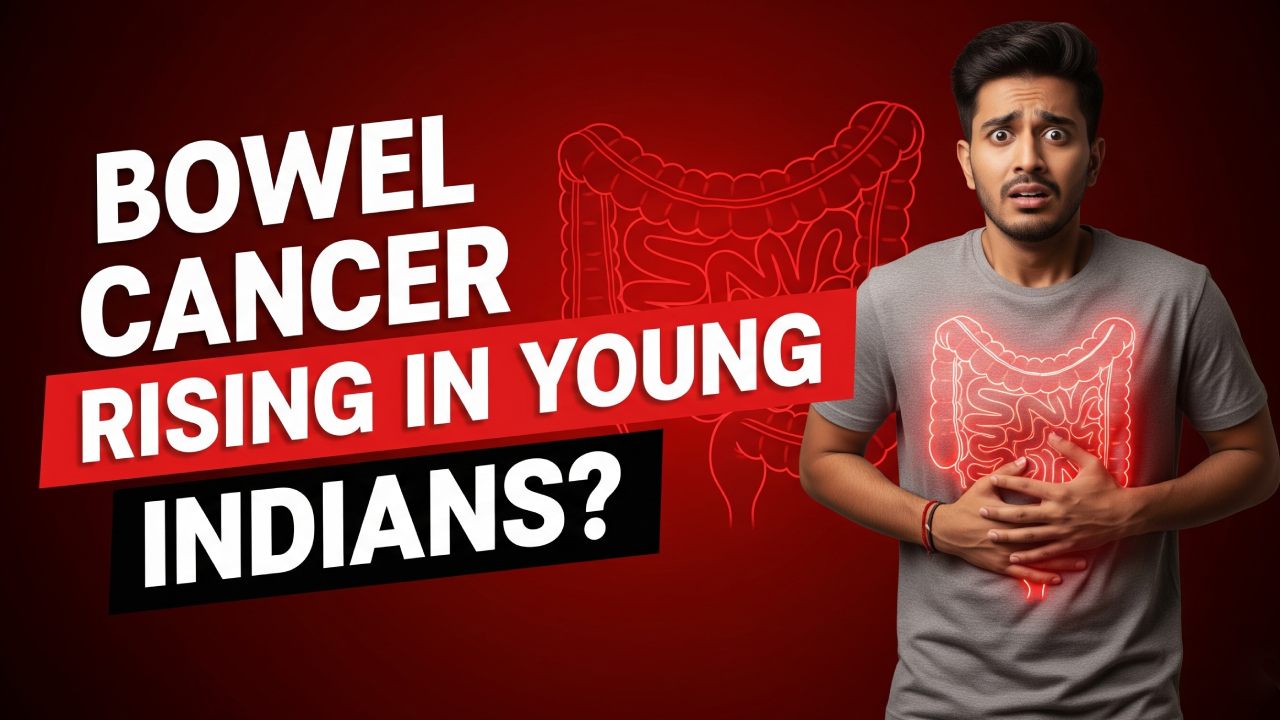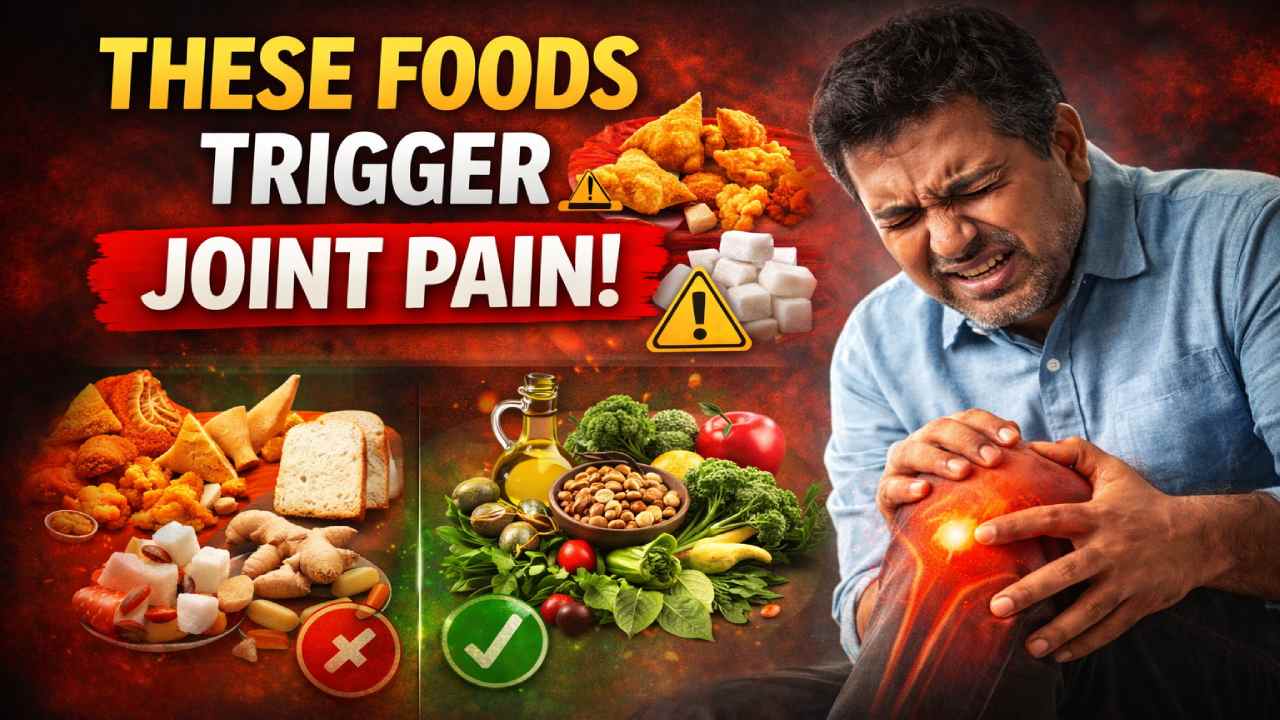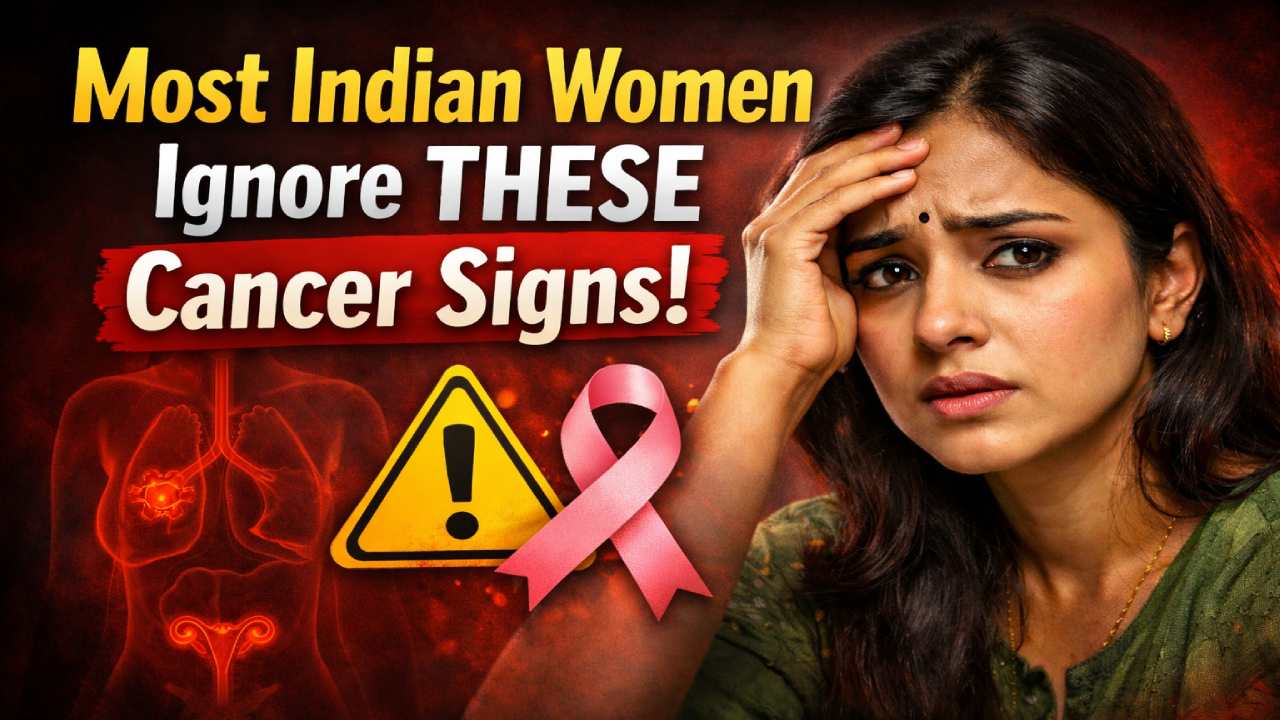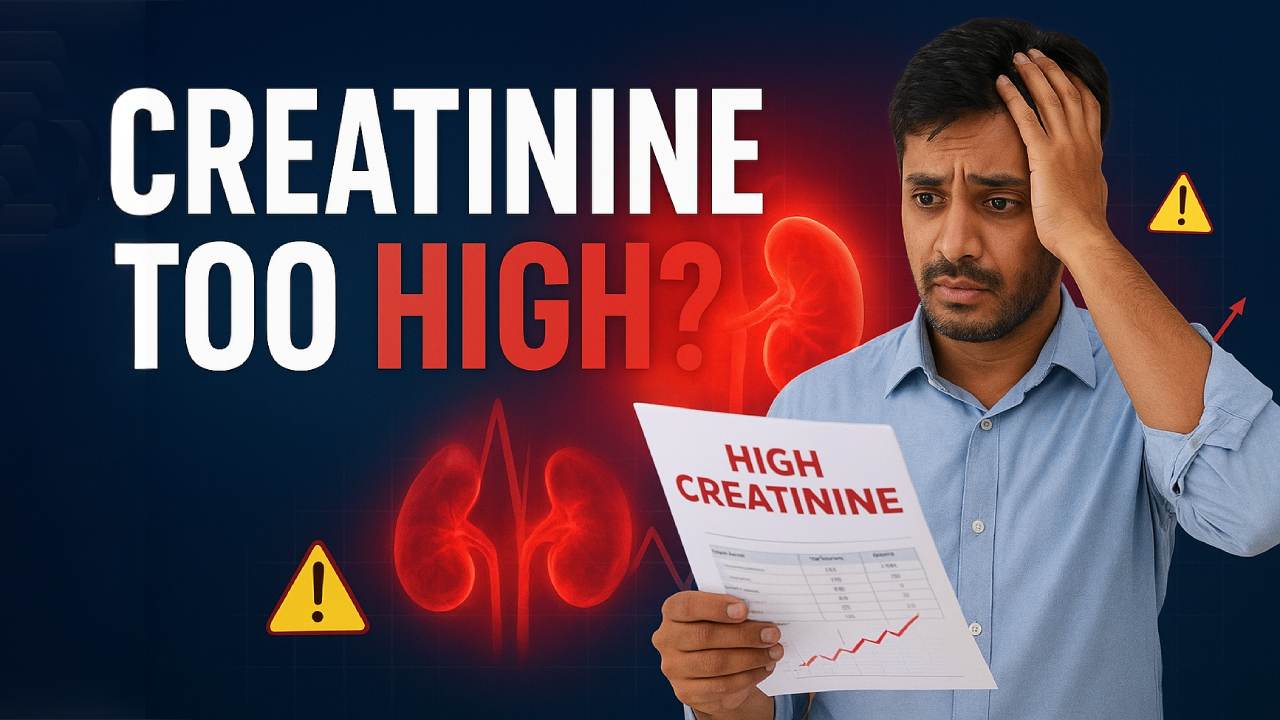Bowel Cancer in Your 20s & 30s? The Alarming Rise and What Young Indians Must Know
Verified By Dr. Aditya Sharma | 20-Aug-2025
For generations, cancer has been perceived as a shadow that looms over the later stages of life. We associate it with our parents or grandparents, a health concern for those past fifty. But a silent, disturbing trend is challenging this long-held belief. An increasing number of young adults in their 20s, 30s, and 40s are being diagnosed with bowel cancer, also known as colorectal cancer. What was once considered a disease of the elderly is now becoming a frightening reality for the young and ambitious generation of India.
This isn't just a statistical anomaly; it's a public health warning we can no longer afford to ignore. The symptoms are often subtle and easily dismissed as common digestive issues, leading to delayed diagnoses when the disease is far more advanced and harder to treat.
Why is this happening? And more importantly, how can you protect yourself, and why is it so important? We spoke with Dr. Aditya Sharma, a GI & Bariatric Surgeon at Kailash Hospital, to understand the causes behind this trend, the warning signs you must never ignore, and the proactive steps you can take to safeguard your health.
Table of Content
Bowel cancer affects the colon or rectum, which are parts of the large intestine. It usually starts as tiny, noncancerous growths known as polyps, which can eventually turn into cancer if left unchecked. The alarming shift is in the 'who' and 'when'.
"The change in our patient demographics over the last decade is stark," says Dr. Sharma. "Previously, it was rare to see a colorectal cancer patient under the age of 50. Now, it's not uncommon to diagnose individuals in their late 20s or early 30s. This is a significant and worrying shift that points directly to our modern lifestyles."
This trend means the old screening guidelines, which typically start at age 45 or 50, may no longer be sufficient to catch these early-onset cases. This makes it crucial for young people to be aware of the risk factors and symptoms.
Also read: How to Reduce Too Much Acid in Stomach?
The rise in early-onset bowel cancer isn't due to a single factor but a combination of lifestyle and environmental changes that have swept across India over the past few decades. Dr. Sharma helps us break down the five primary culprits.
1. The Modern "Ultra-Processed" Indian Diet
Our plates have changed dramatically. The traditional Indian diet, rich in fibre, lentils, and fresh vegetables, is increasingly being replaced by Westernized, ultra-processed foods.
"The 'Swiggy/Zomato' culture, while convenient, has a hidden cost," Dr. Sharma explains. "Diets high in processed meats like sausages and salami, red meat, refined carbohydrates (maida), and low in fibre are a major risk factor. These foods promote inflammation in the colon and can alter the gut microbiome in a way that encourages the growth of cancerous cells."
2. The Sedentary Epidemic
From long hours at a desk to binge-watching shows, our lives have become increasingly sedentary. Lack of physical activity does more than just affect your weight; it directly impacts your gut health.
"Physical activity helps stimulate regular bowel movements, reducing the time that waste and potential carcinogens are in contact with the colon wall," states Dr. Sharma. "A sedentary lifestyle leads to sluggish digestion, constipation, and chronic inflammation, all of which are breeding grounds for bowel cancer."
3. Rising Rates of Obesity
India is currently facing a dual problem of malnutrition and a growing obesity epidemic. Excess body fat, particularly around the abdomen, isn't just a cosmetic issue—it's a metabolically active factory that produces inflammatory substances.
"Obesity is essentially a condition marked by ongoing, low-level inflammation," explains Dr. Sharma. "This constant inflammation throughout the body creates an environment where cancer cells can thrive and multiply. The link between obesity and several types of cancer, including bowel cancer, is incredibly strong and well-documented."
4. A Neglected Gut Microbiome
Your gut is like a bustling city filled with trillions of bacteria, all working together as part of what we call the microbiome. This ecosystem is crucial for digestion, immunity, and maintaining our overall health. A modern lifestyle—poor diet, stress, overuse of antibiotics—can disrupt this delicate balance.
"An unhealthy gut microbiome, or 'dysbiosis,' can lead to a compromised gut lining and chronic inflammation. Certain harmful bacteria can produce metabolites that are carcinogenic," Dr. Sharma notes. "Nurturing your gut with fibre-rich, fermented foods is no longer just a wellness trend; it's a critical cancer prevention strategy."
5. Genetic Predisposition and Unawareness of Family History
While lifestyle factors are major drivers, genetics still play a role. Certain inherited conditions, like Lynch syndrome, can significantly increase the risk of developing bowel cancer at a young age.
"A lot of young people don’t really know much about their family’s medical history," warns Dr. Sharma. "Knowing if a close relative—a parent, sibling, or child—had colorectal cancer or polyps is crucial information. If there's a history, you may need to start screening much earlier than the general population."
The biggest challenge with early-onset bowel cancer is that its symptoms are often mistaken for less serious conditions like irritable bowel syndrome (IBS), gastritis, or haemorrhoids. Because of their young age, both patients and sometimes even doctors might not suspect cancer initially.
Dr. Sharma urges everyone to pay attention to these persistent symptoms:
- A persistent change in your bowel habits: If you're experiencing diarrhea, constipation, or any changes in your stool consistency that stick around for more than a couple of weeks, it's important to take note.
- Rectal bleeding or blood in your stool: Never assume it's just piles. Any rectal bleeding needs to be investigated.
- Persistent abdominal discomfort: If you're dealing with persistent abdominal discomfort, you might be experiencing cramps, gas, or even some pain.
- A feeling that your bowel doesn't empty completely.
- Unexplained weight loss: Losing weight without trying is a major red flag.
- Weakness or fatigue: That could be a sign of anemia, which might be linked to chronic blood loss in your stool.
"If you notice any of these changes, don't dismiss them," Dr. Sharma emphasizes. "Your age is not a protective shield. It's better to get it checked and be told it's nothing, than to wait until it's too late. Detecting this disease early is our strongest tool in the fight against it."
Also read: Understanding Peptic Ulcers: Causes, Symptoms, and Treatment Options
The good news is that you are not powerless. A significant number of bowel cancer cases are preventable through conscious lifestyle choices.
- Reclaim Your Plate: Prioritize whole foods. Make sure to load up your diet with plenty of fruits, veggies, whole grains like brown rice and millets, and legumes. Drastically reduce your intake of red meat (mutton, pork, beef) and avoid processed meats entirely.
- Get Moving, Every Day: Make it a goal to get in at least 150 minutes of moderate-intensity exercise each week—think brisk walking, cycling, or swimming. Break up long periods of sitting by standing or stretching every 30 minutes.
- Keeping a Healthy Weight: A well-rounded diet paired with regular exercise forms the foundation of effective weight management. Even shedding a few pounds can make a big difference in lowering your cancer risk.
- Limit Alcohol and Quit Smoking: Both are well-known carcinogens that increase the risk of bowel and other cancers.
- Know Your History and Get Screened: Talk to your family about their health history. If there is a background of colorectal cancer, discuss this with your doctor. For instance, if you have a family history, consulting the best gastroenterologist in Noida for advice on when to begin screening is a crucial first step. They might recommend procedures like a colonoscopy test procedure in Noida much earlier than the standard age.
The rise of bowel cancer in young adults is a direct reflection of our changing world. But it's also a call to action. By understanding the risks, recognizing the symptoms, and making empowered choices about our diet and lifestyle, we can fight back against this disturbing trend and protect the health of our generation.



 +91-9711918451
+91-9711918451
 international.marketing@kailashhealthcare.com
international.marketing@kailashhealthcare.com







